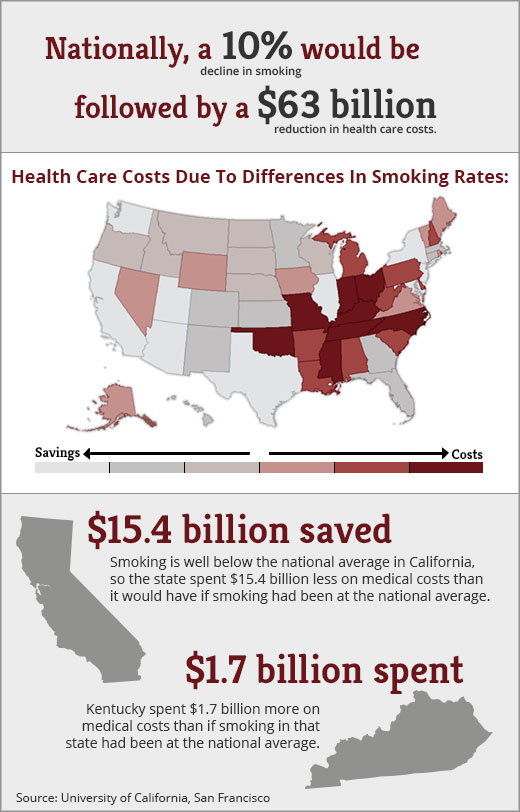Reductions in smoking are associated with reduced health expenditures. In a study released last week, the University of California, San Francisco estimated how much money smoking was costing or saving states in 2009 because of how many people smoked compared to the national average.
California had the most savings, spending $15.4 billion less than if smoking rates there had been at the national average. The state facing the highest costs was Kentucky, which spent $1.7 billion more on medical costs than if smoking had been at the national average there.
Researchers also found that a 10-percent decline in smoking in every state would lead to an estimated $63 billion reduction (in 2012 dollars) in health care expenditures.
“These are short run 1- to 2-[year] predictions, and while they indicate that the effects of changes in smoking on healthcare expenditure begin to appear quickly,” wrote the authors, “they do not imply that all changes in the costs and savings of smoking in the population are immediate.”


